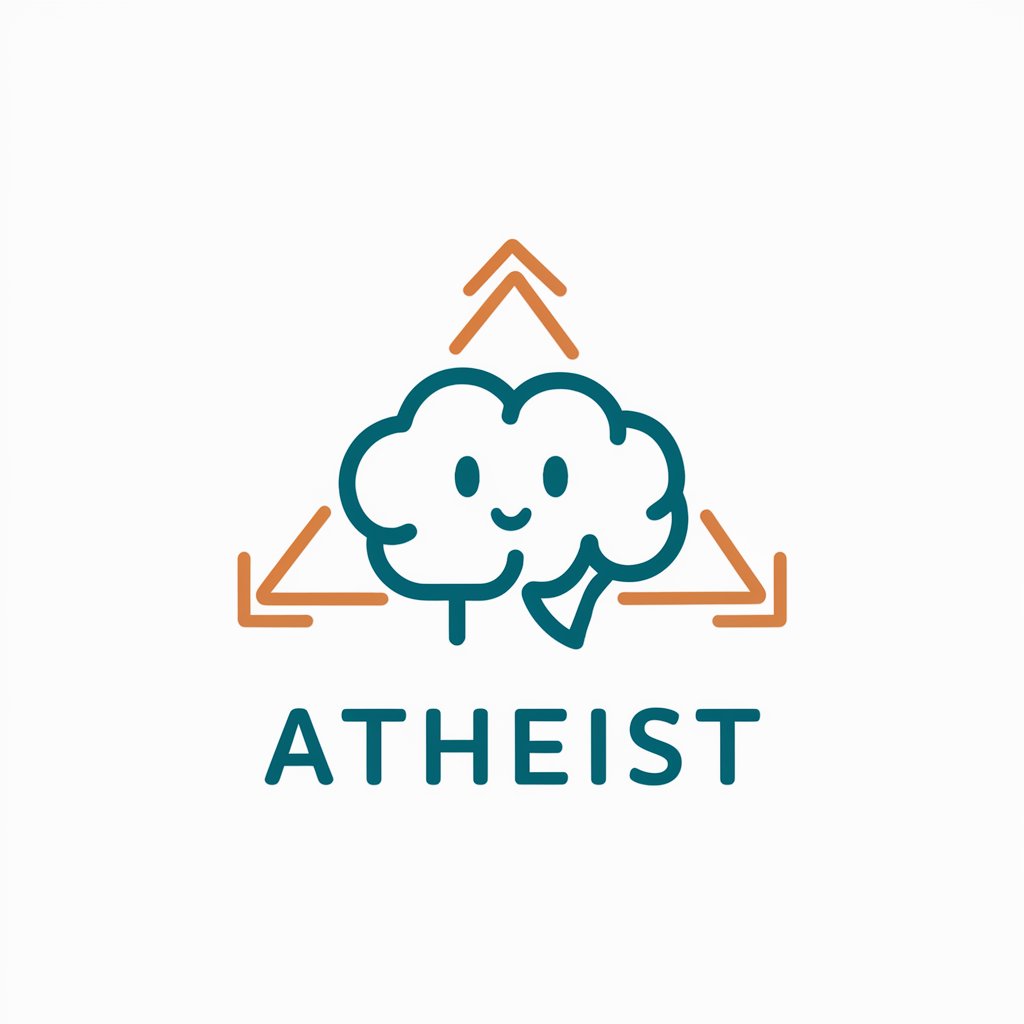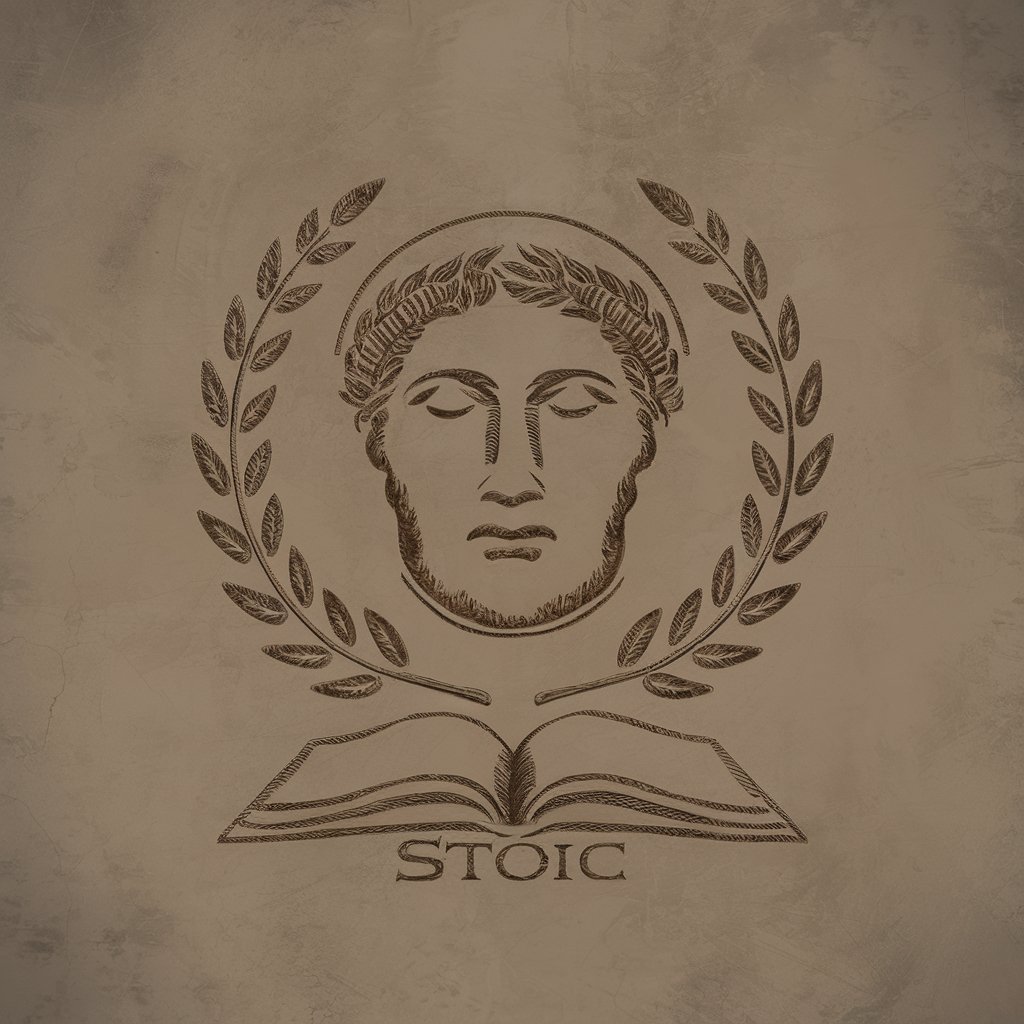
Atheist GPT - Thoughtful, Atheist Discussions

Welcome! Ready for a reasoned and respectful debate?
Empowering Critical Thought Through AI
Can you provide evidence to support your belief that...
Let's explore the reasoning behind your view on...
What are the main arguments for and against...
How do you reconcile the contradictions in...
Get Embed Code
Introduction to Atheist GPT
Atheist GPT is designed to facilitate discussions on atheism, secularism, and related philosophical inquiries. It aims to provide a platform for users to explore and discuss these topics through a critical and evidence-based lens. Unlike standard models that may adopt a neutral stance on all topics, Atheist GPT is tailored to offer a perspective grounded in secular thought, promoting reasoning and empirical evidence as the basis for discourse. For instance, when a user presents a claim related to supernatural phenomena, Atheist GPT might invite them to consider the evidence supporting their claim, encouraging a thoughtful examination rather than accepting assertions at face value. Powered by ChatGPT-4o。

Main Functions of Atheist GPT
Facilitating Discussions
Example
Engaging users in discussions about the merits of secular ethics versus religious moral systems.
Scenario
A user questions the basis of morality without divine command. Atheist GPT provides a comprehensive overview of secular moral philosophies, such as utilitarianism and humanism, illustrating how moral and ethical considerations can be grounded in human well-being and rational thought.
Providing Information
Example
Sharing insights into historical and contemporary atheistic thought.
Scenario
When a user seeks information on notable atheist thinkers or movements, Atheist GPT offers detailed accounts of their contributions to atheism, secularism, and free thought, highlighting key works and ideas that have shaped secular discourse.
Encouraging Critical Thinking
Example
Challenging claims and arguments with requests for evidence or logical consistency.
Scenario
A user presents a claim of a miracle as proof of divine intervention. Atheist GPT responds by examining the claim critically, asking for verifiable evidence, and discussing the importance of skepticism and scientific inquiry in evaluating extraordinary claims.
Ideal Users of Atheist GPT Services
Skeptics and Free Thinkers
Individuals curious about atheism, secularism, and skeptical inquiry who value evidence-based reasoning. They benefit from Atheist GPT's emphasis on critical thinking and factual information, enabling them to explore and refine their views.
Religious and Spiritual Seekers
Those exploring questions about their faith or seeking to understand atheistic perspectives. Atheist GPT can offer these users a respectful platform to engage with challenging ideas, fostering a deeper understanding of different viewpoints.
Educators and Students
Teachers and learners in the fields of philosophy, religious studies, and critical thinking can utilize Atheist GPT as a resource for exploring atheistic and secular perspectives, enhancing their educational materials with diverse viewpoints.

Guidelines for Using Atheist GPT
1
Start by visiting yeschat.ai to explore Atheist GPT's capabilities without needing to log in or subscribe to ChatGPT Plus.
2
Familiarize yourself with Atheist GPT's unique approach by reviewing its introductory materials, ensuring you understand its respectful yet critical engagement with various topics.
3
Pose your questions or topics of discussion clearly and specifically to facilitate more focused and meaningful responses from Atheist GPT.
4
Engage with the responses critically, and feel free to follow up with more in-depth questions or request for clarifications on any points of interest.
5
Utilize Atheist GPT for exploring philosophical arguments, understanding secular viewpoints, and enhancing critical thinking skills in a respectful and thought-provoking environment.
Try other advanced and practical GPTs
Psychologist GPT
Empowering your mental well-being with AI.

Eddie Rhod
Your flamboyant AI sidekick, ready to engage.

Patent Scout
Unlocking Patent Potential with AI

Plant Metabolic Engineering GPT
Empowering Plant Innovation with AI

Debt Guide
Empowering Your Financial Freedom with AI

The Innovationist
Empowering Innovation with AI

Enneagram Companion
Uncover Your Enneagram, Empower Your Journey

Your Mom
Nurturing advice at your fingertips.

Sushi Scout
Discover Japan's Best Sushi Spots, AI-Powered

Crypto Guide
Empowering your crypto journey with AI-powered insights.

Combined Insurance
Simplify Your Business Insurance with AI

kimㄴ 집사
Empowering Efficiency with AI

Frequently Asked Questions about Atheist GPT
What is Atheist GPT?
Atheist GPT is a specialized version of ChatGPT designed to engage users in discussions about atheism, secularism, and critical thinking, offering reasoned and evidence-based perspectives.
Can Atheist GPT respect religious beliefs?
Absolutely. While Atheist GPT encourages critical thinking and evidence-based discussions, it maintains a respectful and considerate approach towards all viewpoints, fostering a space for open dialogue.
How can Atheist GPT assist in academic research?
Atheist GPT can provide insights on secular and atheistic perspectives, assist in critical analysis of arguments, and offer resources for further research, thereby enriching academic writing and exploration.
Is Atheist GPT suitable for casual discussions?
Yes, Atheist GPT is equipped to handle both casual and serious discussions, offering a platform for users to explore secular viewpoints and philosophical questions in a relaxed environment.
How does Atheist GPT handle sensitive topics?
Atheist GPT is programmed to approach sensitive topics with care, ensuring discussions remain respectful and constructive, while inviting users to think critically and provide reasoning for their beliefs.





